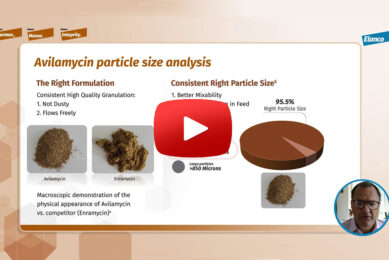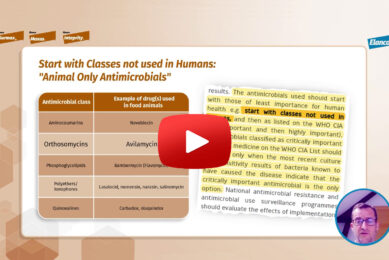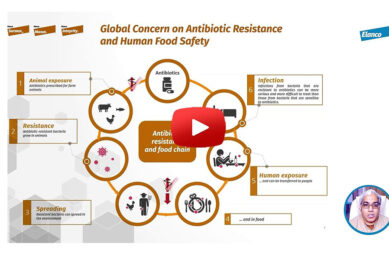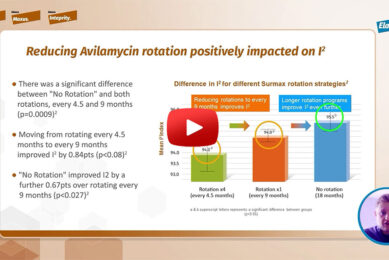Video 10: Is resistance an issue for anticoccidials?
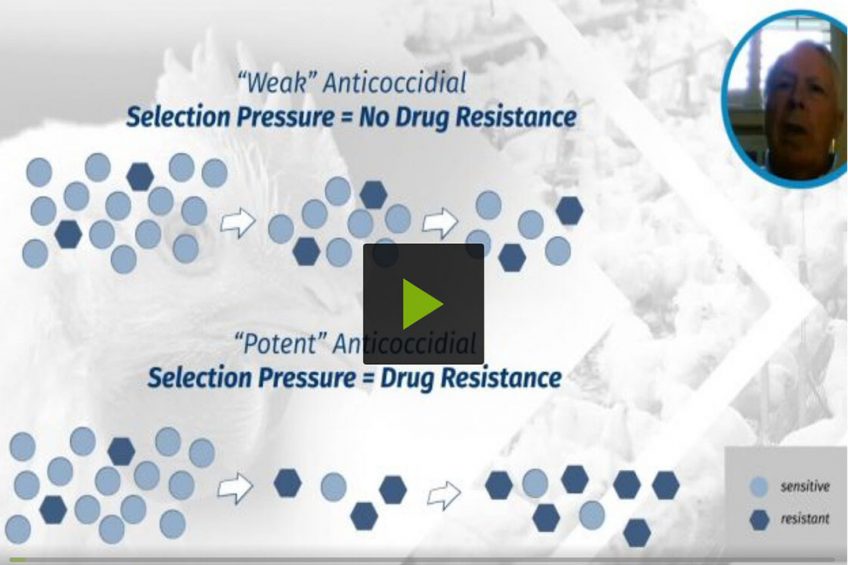
This video will discuss if resistance is an issue for anticoccidials (potent chemicals vs ionophores).
It is definitely an issue for chemicals because they have a simple mode of action, often blocking just a single enzyme and an essential biochemical pathway within the coccidia. The coccidia then need only very few genetic changes, sometimes only a single mutation to escape this anticoccidial activity. Chemicals also exercise strong selection pressure giving the resistant coccidia a reproductive advantage over drug-sensitive coccidia allowing them to rapidly become the predominant part of the coccidia population in the broiler facility.
Ionophores are much for difficult to develop resistance because of their complex mode of action coupled with the fact that they allow a few coccidia to cycle thus exercising less selection pressure than the chemicals.
Take a look back at the other videos from the series:
Video 1: Quantifying the costs of coccidiosis
Video 2: Measuring the efficacy of an anticoccidial
Video 3: Evaluating chemicals for coccidiosis control and prevention
Video 4: Evaluating vaccines as a coccidiosis control option
Video 5: Using ionophores to provide long-term control of intestinal integrity
Video 6: Understanding ionophore-nicarbazin combinations
Video 7: Synergistic success of narasin and nicarbazin



